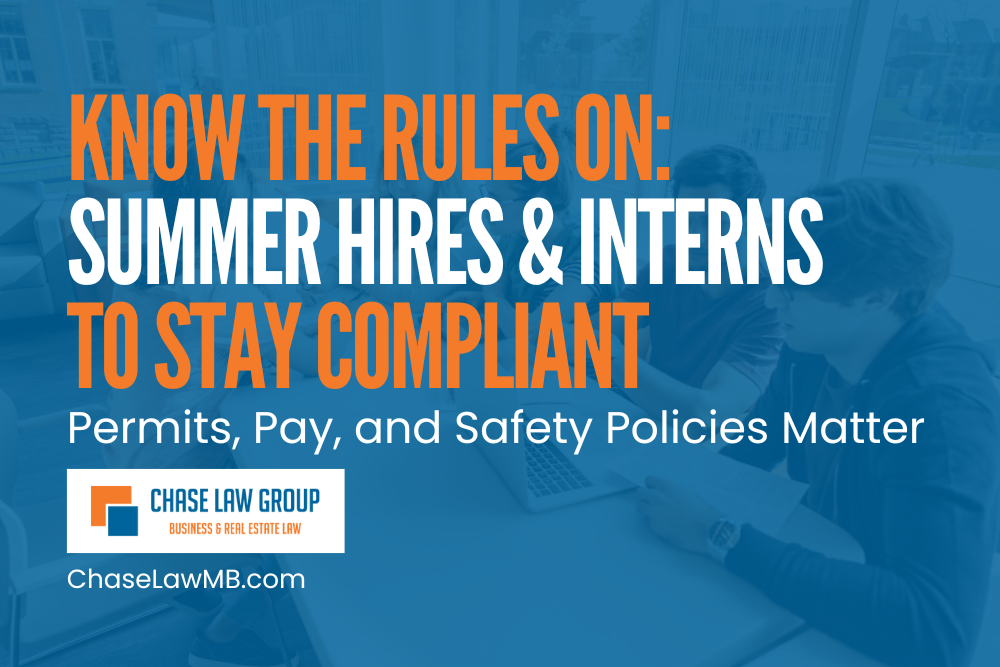
As summer approaches, many businesses look to hire seasonal workers or interns. Whether you're bringing teens on board to support operations or welcoming student interns for short-term projects, it's critical to understand your legal obligations—especially in California, where labor laws are strict. Hiring Minors? Start with Work Permits and Safety Employers must obtain a valid work permit before hiring anyone under 18—even during the summer. Permits must be signed by the minor, their parent or guardian, and submitted to the school district for approval. Once issued, the permit outlines legal work hours and restrictions based on the minor’s age. Key... READ MORE
New California Court Decision Regarding Meal Break Waivers
By Admin May 28, 2025 Category: Employment
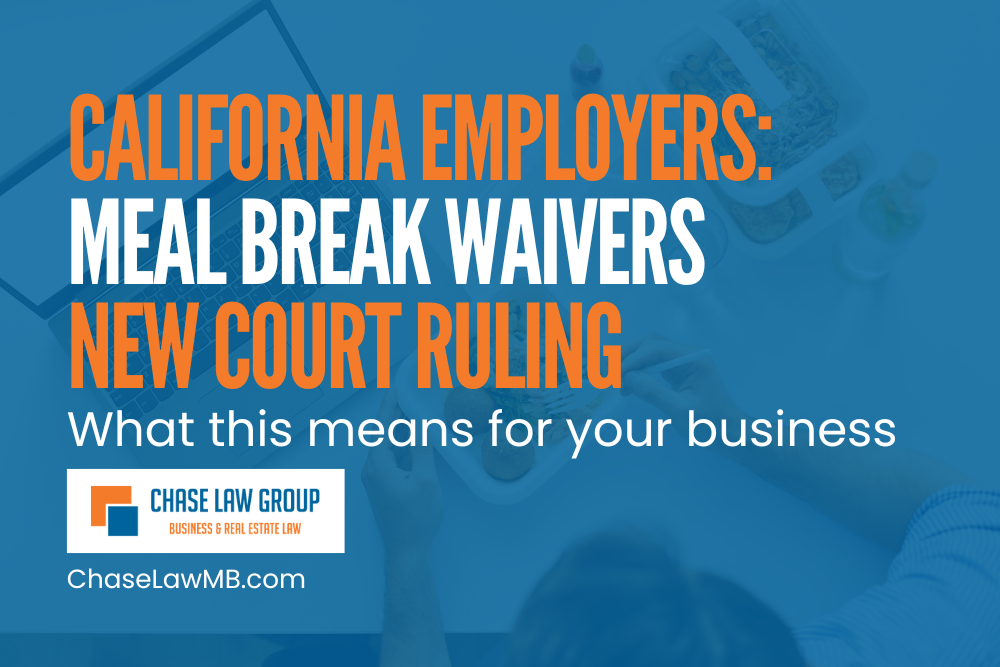
In a recent decision issued by the California court of appeal, La Kimba Bradsbery et al. v. Vicar Operating, Inc. (2025) the court confirmed that an employer does not need to obtain a meal break waiver each time an employee chooses to skip a meal break. Rather, a single advance meal break waiver is sufficient. Specifically, in California, employees who work less than 6 hours may agree to waive their meal break, so long as the waiver is entered into voluntarily by the employee and is not coerced by the employer and includes language that the employee can revoke this... READ MORE
2025 California Employment Law Updates: Important Bills to Watch
By Admin April 29, 2025 Category: Employment
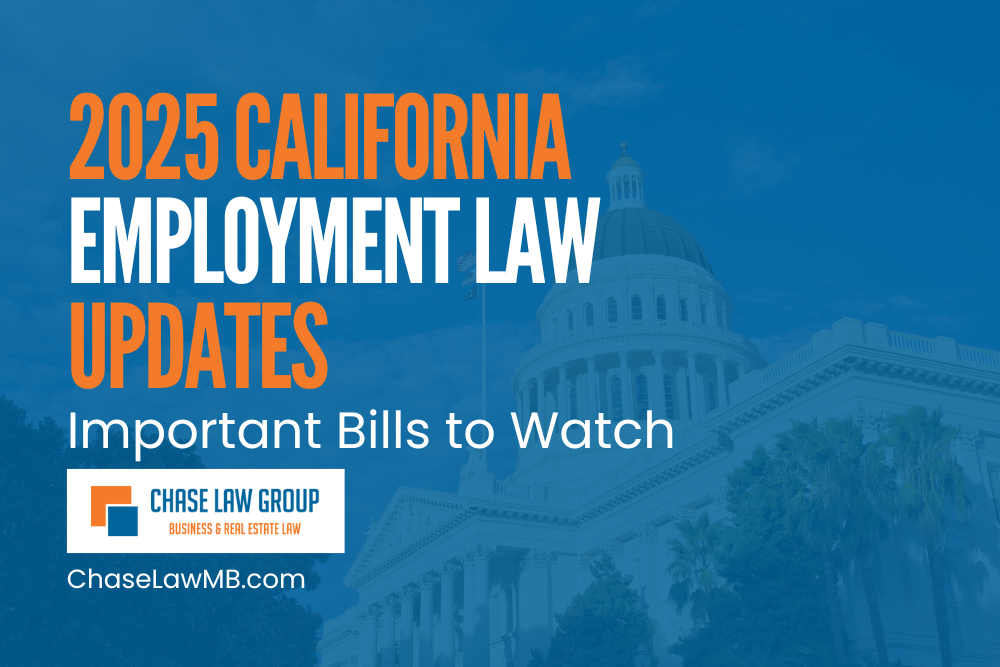
April was a busy month in Sacramento following legislators’ Spring recess. As the 2025 legislative session progresses, California lawmakers introduced several bills that could have a significant impact on employment law in the state. While it's still early to determine which bills will move forward, these proposed changes could greatly influence how California employers operate. Key Proposed Employment Laws AB 1018: Regulating Automated Decision Systems Assembly Bill 1018 seeks to regulate the use of automated decision-making systems, including artificial intelligence (AI) and machine learning, that influence hiring, promotions, performance reviews, and pay. Under this bill, employees would have the right... READ MORE
Avoid the HR Headaches Before Q2 Hits: Common Mistakes & How to Stay Compliant
By Admin March 25, 2025 Category: Employment
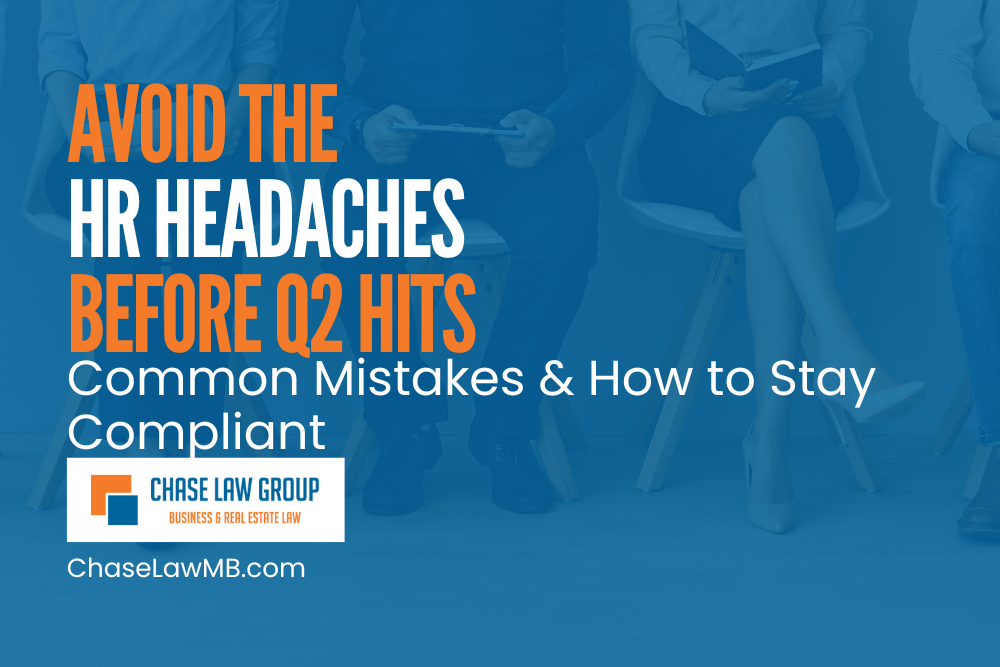
As we wrap up Q1, now is the perfect time to take a closer look at your HR practices before heading into the next quarter. At Chase Law Group, we regularly see avoidable HR missteps turn into costly legal problems for businesses—especially in California, where employment laws are constantly evolving. Here are a few key areas to review. Common HR Mistakes That Could Cost You: 1. Misclassifying Employees and Contractors Misclassifying workers can trigger serious penalties. With strict state standards, it’s critical to ensure your 1099 contractors aren’t legally employees. 2. Outdated Employee Handbooks A compliant, updated handbook protects both... READ MORE
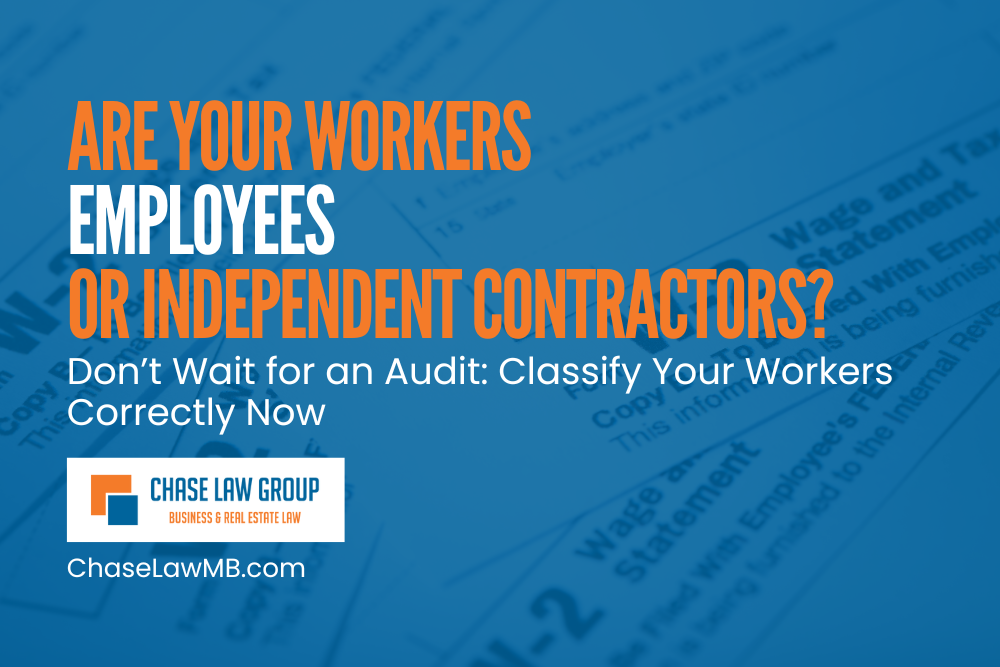
Classifying your workers correctly has never been more important—or more challenging. In California, the distinction between independent contractors and employees continues to evolve, and misclassification can lead to serious legal and financial consequences, including penalties, back pay, and tax liabilities. As we move into 2025, it’s essential for business owners to understand how worker classification is determined and what has changed in the law. Understanding the ABC Test Under California’s AB 5, most workers are presumed to be employees unless the hiring business can satisfy all three parts of the ABC test: A. The worker is free from the control... READ MORE
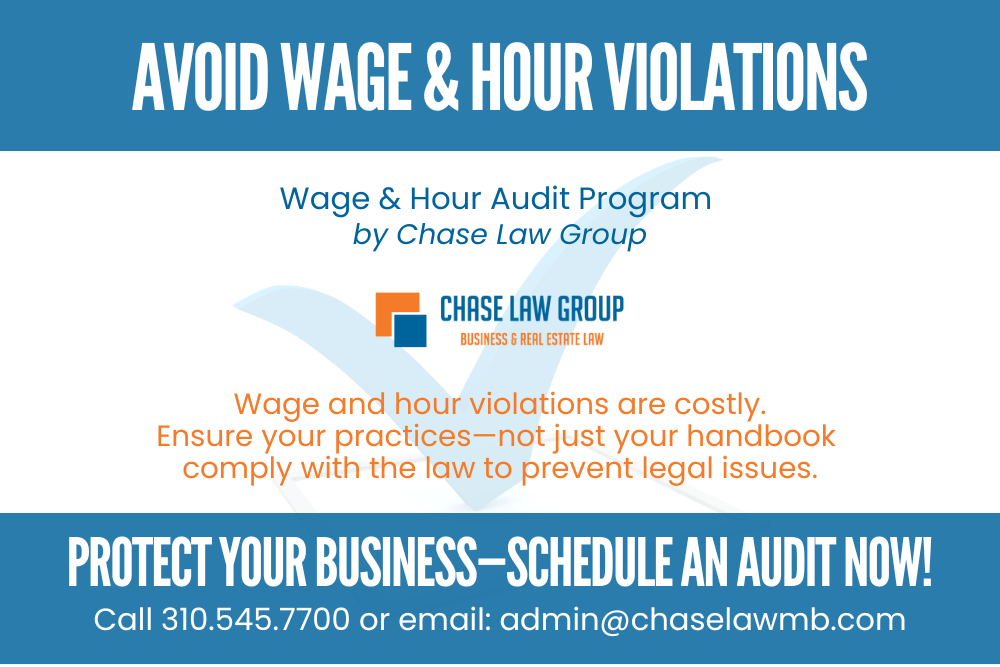
California has some of the most employee-friendly labor regulations in the country, which can make it challenging for employers to navigate. In particular, wage and hour violations can lead to significant penalties and exposure for both small and large businesses. While employers often believe they have met their wage and hour obligations by issuing a legally compliant employee handbook, they often fail to ensure that their actual wage and hour practices align with all labor code requirements, leaving them exposed to costly employee claims and lawsuits. By periodically having an experienced employment attorney review their practices, employers can identify discrepancies... READ MORE
2025 IRS Mileage Rate Increase: Use of Personal Vehicle for Work
By Admin January 29, 2025 Category: Employment
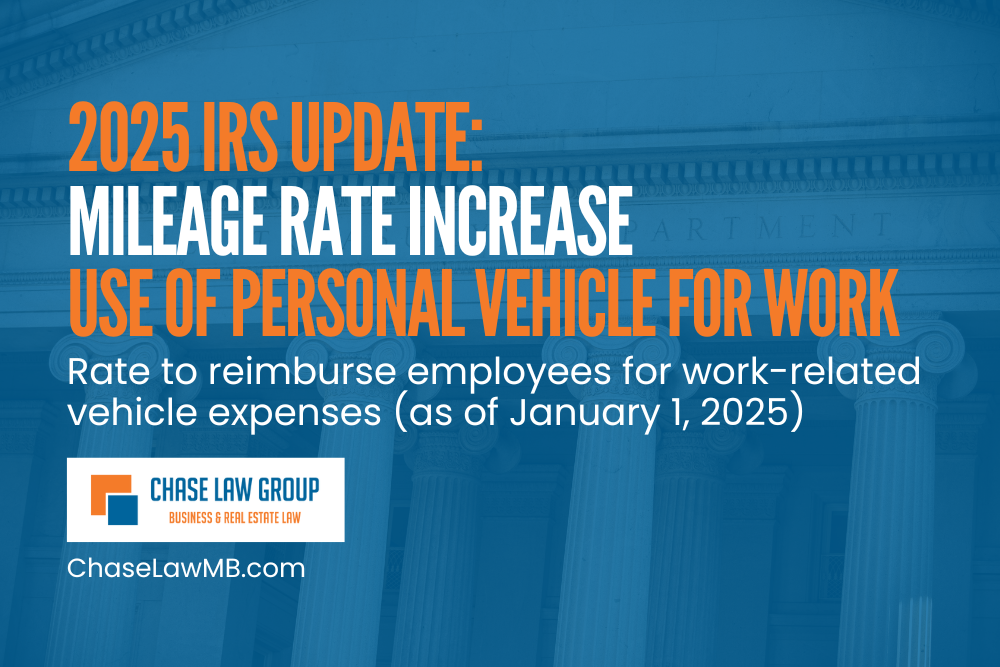
Effective January 1, 2025, the standard mileage rates for use of a car, van, pickup, or panel truck will be 70 cents per mile, which is an increase of three cents from 2024. Therefore, employers are advised to reimburse employees who use their own personal vehicle for work purposes based on this new IRS rate, as it will be deemed reasonable and sufficient for purposes of reimbursing employees for work-related expenses pursuant to Labor Code section 2802. Alternatively, if employers use some other method for reimbursing their employees for the use of their personal vehicle for work purposes, they must... READ MORE
California Minimum Wage Set to Increase Effective January 1, 2025
By Admin December 02, 2024 Category: Employment
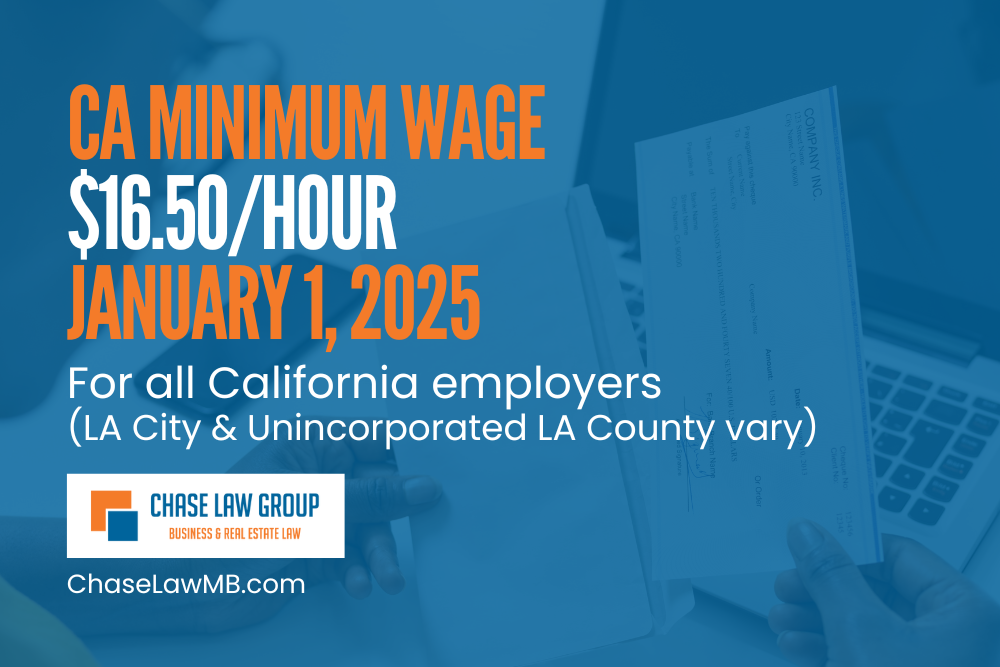
Although Prop 32, which would have increased California minimum wage to $17.00 for smaller employers and $18.00 for larger employers narrowly failed to pass earlier this month, California minimum wage for all size employers is set to increase to $16.50 effective January 1, 2025 pursuant to already existing legislation. Additionally, as a result of this change in minimum wage, the minimum salary for exempt employees will increase to $68,640 or $5,720.00 per month. If exempt employees are not paid at least this much, they will not qualify as exempt. Also, note that minimum wage for the City of Los Angeles... READ MORE
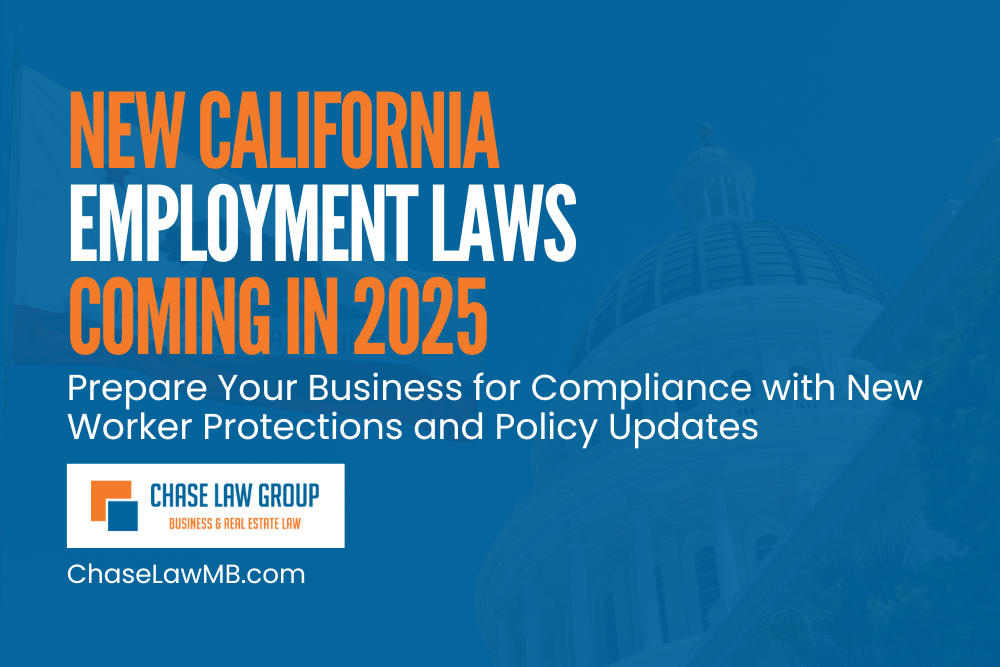
Governor Newsom recently signed into law several new California employment laws that come into effect on January 1, 2025. Below are these new laws. Prohibition of Requiring Employees to Attend a Meeting Where Religious or Political Opinions Are To Be Discussed Under SB 399, the “California Worker Freedom from Employer Intimidation Act” (subject to limited exceptions) prohibits employers from taking or threatening to take adverse action against an employee who declines to attend a meeting or participate in, receive, or listen to its opinion on “religious” or “political” matters, which includes union organizing. Violations are subject to a civil penalty... READ MORE

As the November 5th election approaches, employers are reminded to comply with California’s voting-related laws, including leave and posting requirements. Voting Leave California employers must permit employees up to two hours of paid time off to vote if they don’t have enough time outside work hours to vote. Employers may require employees to give advance notice that they will need such time off for voting. Employers can limit the time off to be taken only at the beginning or end of the employee’s shift, whichever provides the greatest opportunity for voting and minimizes the time away from the regular work... READ MORE

